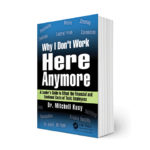
Why is traditional note-taking more effective than electronic-based note-taking?
Traditional handwriting enables the writer to think more clearly and make fewer mistakes as they write. Additionally, it helps with memorization. In a study published by Psychological Science [the journal of the Association for Psychological Science], they found that those who took handwritten notes performed significantly better than those that typed lectures. The study showed that this handwritten note-taking not only leads to higher-quality learning but is also a superior strategy for memorization in the long term.
Is this the case across age groups, regardless of whether people grew up with electronic devices?
Yes, the benefits expand across all age groups. While writing longhand helps develop the minds of children, it also helps the minds of adults stay active. Some physicians say handwriting could be a good cognitive exercise for Baby Boomers working to keep their minds sharp as they age.
Are there times when electronic note-taking is preferable to handwritten note-taking?
Taking notes electronically eliminates the risk of losing pages and allows the note-taker to be more organized, but handwritten note-taking is much quicker and provides more personal and cognitive advantages.
Are there ways that content can be presented at meetings and conferences — via keynotes, panel discussions, etc. — that help facilitate or are mindful of handwritten note-taking?
Leuchtturm1917 has worked with Whitelines to create a notebook that seamlessly processes your handwritten notes electronically. Whitelines provides a connection between the act of writing notes and the ability to organize them across different platforms. Using a smartphone app, the user can scan their handwritten notes and continue to edit via the computer, so that they may be used for presentations, speaking engagements, and the like.



